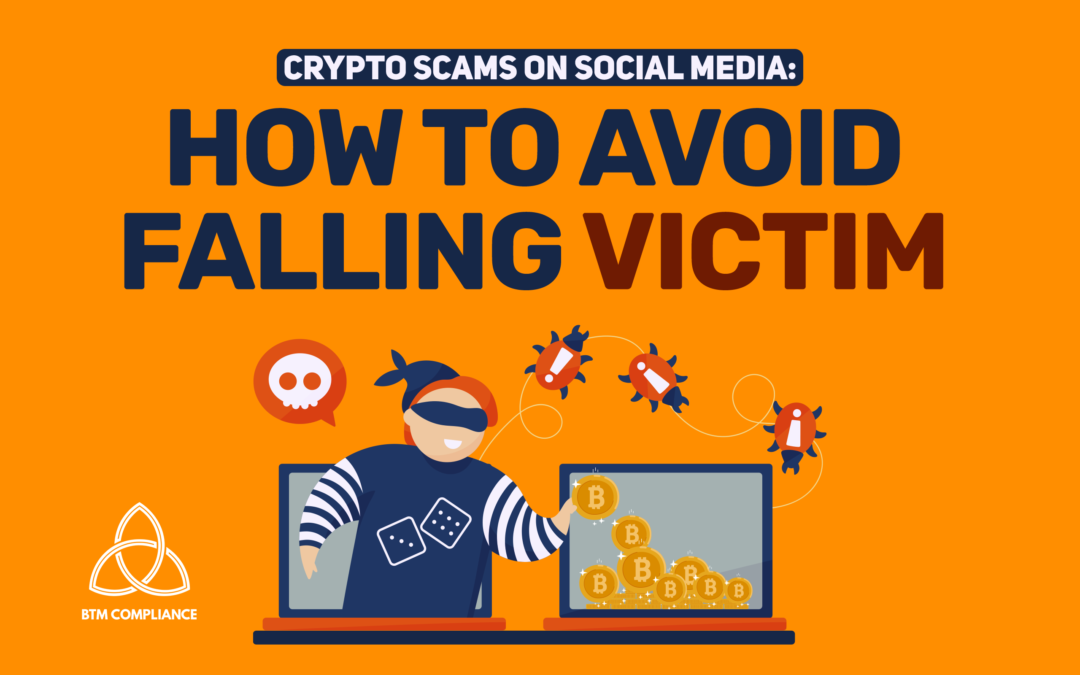Introduction
The rapid growth of the cryptocurrency sector and the widespread adoption of virtual currencies have created fertile ground for con artists. Social media has become a breeding ground for these crypto scams, with fraudsters leveraging various tactics to lure investors into their traps.
In this post, we’ll delve into the world of social media cryptocurrency scams, talk about common ploys, and provide you insightful analysis and useful advice to keep you secure in the world of digital assets.
A Startling Reality: Crypto Scams on the Rise
Recent years have seen a sharp increase in cryptocurrency scams. Social media platforms have become the primary hunting grounds for scammers due to their vast user base and easy access to potential victims.
The Most Common Crypto Scams on Social Media
Fake Giveaways and Celebrity Endorsements
Crypto scammers often impersonate influential figures or well-known companies in the crypto space, creating fake giveaways that promise free digital assets or crypto coins. User participation frequently involves sending a modest quantity of bitcoin to a predetermined address.
According to the Federal Trade Commission (FTC), consumers reported losing over $80 million to crypto investment scams in the period between October 2020 and March 2021, with a notable portion attributed to giveaway scams.
In addition, fraudsters exploit celebrity endorsements to lure investors. For instance, they might use a doctored image of a famous personality claiming to endorse a specific cryptocurrency project or initial coin offering (ICO).
Always verify the legitimacy of these claims and endorsements before engaging with them. Research the associated social media accounts, look for verified badges, and check if official celebrity sites are listing that particular account as an official account, these are just some of the technics to confirm the authenticity of the endorsements.
Ponzi and Pyramid Schemes
Crypto Ponzi and pyramid schemes, also known as investment scams, promise high returns to investors who bring new members into the system. Profits are typically generated from the investments made by new members, creating an unsustainable system that eventually collapses.
As a result, unsuspecting investors are left with worthless currency or a significant loss of money.
Be cautious of any investment opportunity that guarantees high returns with little to no risk, and where the main source of income comes from recruiting new members. Conduct thorough research, consult with experts, and pay close attention to warning signs before making any investment decisions.
Phishing and Fraudulent Websites
Phishing scams target victims by directing them to fraudulent websites that mimic legitimate crypto exchanges, online wallets, or crypto asset management platforms. These sites aim to trick users into providing sensitive information, such as private keys or personal details.
Armed with this data, crypto scammers can gain access to the victim’s crypto assets and siphon their funds.
To avoid falling victim to phishing scams, always double-check the URL of the websites you visit, look for security indicators such as HTTPS and SSL certificates, and never share your private keys with anyone or personal information with unverified sources.
Pump and Dump Schemes
In pump-and-dump schemes, a group of individuals coordinates to artificially inflate the price of a specific cryptocurrency by promoting it and making coordinated purchases. The group may use social media platforms, forums, or messaging apps to spread the word.
Once the price has spiked, the group sells off their holdings, causing the price to plummet and leaving unsuspecting investors with substantial losses.
To protect yourself from pump-and-dump schemes, be cautious of sudden surges in trading volume or price for a specific cryptocurrency. Research the project thoroughly and avoid making impulsive decisions based on social media hype or unverified information.
A study from 2018 estimates that pump and dump schemes accounted for approximately $7 million in trading volume per month at the time.
Impersonation
Be aware of impersonation schemes. In this scheme scammers may create a fake profile on social media impersonating a celebrity or your friends or a distant cousin. Often they will reach out out of nowhere and strike the conversation. Usually they will say brag about their amazing investment and how they have earned a lot of money or got a big government grant and that you can do the same. They usually offer to put you in touch with a person or company that “made it happen” for them. Needless to say they will just point you to the other fake account or burner number where they will continue conversation and try to get you to send them some bitcoin or as investment or as downpayment or administrative fee. Be very careful, US government do not accept bitcoin as a form of payment. And too good to be truth invesgtments are exactly that, too good to be truth.
Tips for Spotting Crypto Scams on Social Media
Here are some additional pointers to help you identify scams and protect your crypto assets:
- Look for spelling and grammar errors in promotional content, emails, or messages.
- Verify the legitimacy of social media profiles (examples: checking for a verified badge and examining their post history and follower count) research online the legitimacy of the accounts.
- Be cautious of high-pressure tactics, such as limited-time offers or demands for immediate action.
- Avoid engaging with direct messages from strangers or unsolicited offers in comments sections or private groups.
- Consult trusted sources, such as reputable news outlets and industry expert as well as your financial advisor for investment advice and information on new projects.
- Always double check every information.
Conclusion
Crypto scams on social media are a harsh reality in the world of digital assets, but by staying vigilant, conducting thorough research, talking to your family members and people you fully trust, following the practical tips outlined in this article as well as government publications and warnings you can protect yourself from falling victim to these fraudulent schemes. Remember, the best defense against scams is knowledge, so continue educating yourself and stay updated on the latest developments in the crypto space.
FAQs
-
How can I protect my crypto wallet from scams?
To protect your crypto wallet, use strong, unique passwords, enable two-factor authentication, never share your private keys or recovery phrases, never give access to your phoen or computer to 3rd parties you dont know and fully trust. Keep your wallet software updated and store your recovery phrases offline or in a hardware wallet, follow recognized security expert advices and always stay informed.
-
Can I get my money back if I fall victim to a crypto scam?
Unfortunately, recovering funds lost in a crypto scam is often challenging due to the decentralized and irreversible nature of cryptocurrency transactions. It’s crucial to take preventive measures and stay cautious to avoid becoming a victim in the first place.
-
How do I report a crypto scam?
If you suspect a crypto scam, report it to the relevant authorities, such as the Federal Trade Commission (FTC), the Commodity Futures Trading Commission (CFTC), or your local law enforcement agency.
-
Are all crypto investments risky?
In short yes, because value of Bitcoin and other crypto can go up, but it can also go down to zero, so its important to be careful with your investment. Its worth mentioning that while investing in cryptocurrencies carries a certain level of risk, not all crypto investments are scams. Conduct thorough research, consult with experts, and carefully consider your risk tolerance before making any investment decisions.
-
Can I trust social media profiles of famous people promoting cryptocurrencies?
Scammers often impersonate celebrities to promote fraudulent schemes. Verify the legitimacy of the social media profiles by checking for a verified badge and examining their post history and follower count. Keep in mind that even verified social media accounts can be compromised so always do your research and star vigilant. Be cautious and conduct your own research before investing in any promoted opportunity.


